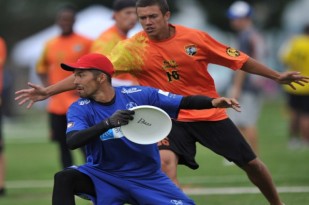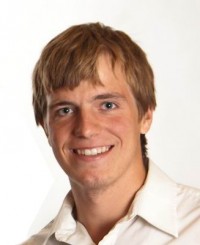Three years ago, NexGen founder Kevin Minderhout set off on an untested journey – to travel the nation in a bus and drawing crowds to a stadium setting where a team of college all-stars would challenge established club teams. Three seasons in and he’s proved that the format can work. In a way, the NexGen Tour was the first professional ultimate league, and certainly was the first barometer of national talent. The Tour begot NGN, a production company that utilized the broadcast lessons of the NexGen Tour to stream high quality games at major events across the world. Founder Kevin Minderhout then set his ambitious sights on establishing a hybrid professional league that highlighted existing club teams in a format that included specialized showcase tournaments. While the league was eventually tabled, Minderhout and NGN are moving forward with what can be seen as a proof of concept: The West Coast Cup.
Hosted in Seattle, on August 17 & 18, the West Coast Cup is a 5-team round robin tournament featuring Seattle Sockeye, San Francisco Revolver, Portland Rhino, Denver Johnny Bravo and Japan’s Buzz Bullets. For good reason, it’s easy to get excited about the competition between these teams as the selection process is heavily tied to what the model the event intends to test.

The Buzz Bullets, a mainstay at ECC tournaments in the past, will be returning to Seattle for the West Coast Cup (photo by Scobel Wiggins)
According to Minderhout, the model is simple: bring out the high quality team brands and cover expenses through ticket sales and online viewership of games. Yes, that means that fans can expect to see Sockeye match up against the Buzz Bullets via NGN livestream. In fact, 6 of the 10 games will streamed live on NGN.
Aside from the top club brands, the Cup boasts a unique format that calls back to Minderhout’s hybrid pro/club league proposal. “The pro elements are highlighted in the single-game format, the stadium experience and the fact there is no bid fee for teams,” noted Minderhout. “The club elements are the teams themselves, observers and the round-robin format.”
“Teams play two games a day and ticketed games are held one at a time,” Minderhout explained . “The format emphasizes finding the right balance between quantity/cost and quality/marketability.”
The WCC stands as a USA Ultimate certified event, utilizing the standard rules-set and with observers making active line calls.
When asked about the goals of the Cup, Minderhout pressed that this is only an experiment. “Right now I’m just hoping not to lose money, said Minderhout. “It’s a risky venture. We’ve got a great venue, but not the cheapest. Expenses for the weekend are going to be in the $13,000 range easily. If I could have backed out after the tour I probably would have, but am glad that whatever happens we’ll have at least added this idea to the community knowledge base and there’s value in that.”
Minderhout went on to offer uncertainty about his future role with the sport and his projects. “I’m pretty unsure about the future of NexGen,” said Minderhout. “I’ve got plenty of thinking ahead of me after the WCC ends. I’m currently not planning on doing the tour again next year and the future probably relies heavily on something like this event being financially viable. If any readers want to ask questions about this I’ll be doing an /r/ultimate AMA on Tuesday, August 13 @ 12pm Pacific time.”
A major player in the development of the sport over the past few years, Minderhout’s vision of what the sport may become leans towards what the professional leagues offer.
“I’m more partial to the vision of the pro leagues because the benefits to players and the fan community is much clearer,” said Minderhout. “A successfully operated pro franchise helps create and foster a local fanbase and these are the people that will spend the money to keep a leagues doors open. It’s just not something USAU can do. It’s not something the NexGen Tour can do.
“If the pro leagues can continue to grow and develop sustainability, I can’t see them not cannibalizing the club scene as we currently know it with respect to the men’s game. That’s a long-term vision though, so if I were going to pick I’d be betting on the people with a minimum of a five-year plan if not ten.
While Minderhout’s own involvement in ultimate post-WCC is uncertain, he still stands by his proposed hybrid model. “If I got to choose what men’s club ultimate looked like in five years, I’d want something similar to the league I pitched in the winter. It’s a solid idea with the right balance between media coverage and what the market can support.”
Information on ticket sales and livestreaming can be found here on NGN.









Comments Policy: At Skyd, we value all legitimate contributions to the discussion of ultimate. However, please ensure your input is respectful. Hateful, slanderous, or disrespectful comments will be deleted. For grammatical, factual, and typographic errors, instead of leaving a comment, please e-mail our editors directly at editors [at] skydmagazine.com.